Tech Report
High-torque, low impact mixing of viscous composites
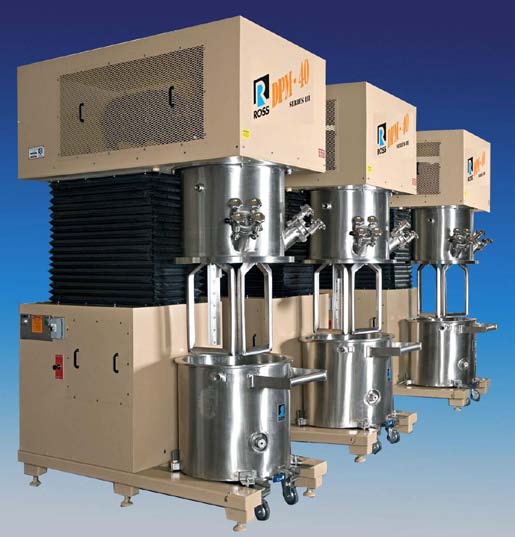
Technology Brief
Double planetary mixers provide thorough, low impact agitation ideal for intimate mixing of delicate fillers into high viscosity materials.
High viscosity mixing
Rheology is one of the most important considerations in mixer selection. For instance, a mixer blade with a fixed axis of rotation, such as a conventional turbine, propeller or saw-tooth disc, when sized appropriately, will easily turnover a batch of water-like viscosity. At higher viscosities, the blade may move product close to it while materials farther from the blade will be less inclined to move and exchange places with product from other areas in the vessel. If the resistance to flow is significantly high, any powders or other raw materials added to the top of the batch will be difficult to incorporate completely. Eventually, as viscosity continues to climb, localized heating can occur in the areas surrounding the mixer blade while product near the walls can become completely stagnant.
The suitable mixer for viscous rheologies must therefore utilize agitators that move through the batch regardless of product flow. That is the forte of the double planetary mixer (DPM). It moves material by rotating two identical blades on their own axes as they orbit on a common axis. The blades continuously advance along the periphery of the mix vessel, removing material from the walls and transporting it towards the interior.
The DPM is a robust machine capable of handling heavy materials as high as 8 million cP*. Powerful, variable-speed drives and heavy construction enable this mixer to deliver high torque throughout its entire speed range.
Shear-sensitive viscous composites
In the manufacture of certain composites and other materials, the high viscosity mixing requirement is further complicated when the formulation calls for dispersion of shear-sensitive ingredients. For these kinds of applications, processing in the DPM provides the perfect balance of high-torque and low-impact agitation.
The comparatively low speed but thorough folding action imparted by the planetary blades is ideal for processing shear-sensitive viscous composites. For example, the DPM can easily and quickly blend fragile glass spheres into a viscous resin, producing a highly uniform mixture with minimal fractures. The desired low density, high strength, low thermal conductivity and other properties are thus achieved in the resulting composite material.
* when equipped with High Viscosity "HV" blades.
Double Planetary Mixer Blade Designs
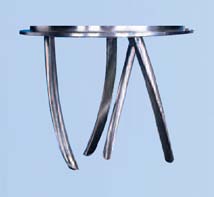
"HV" Blades
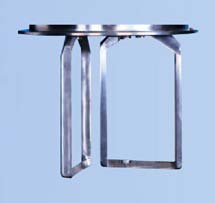
Rectangular Blades
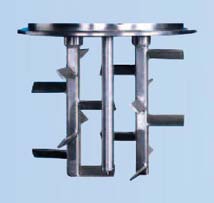
Finger Blades
Application Snapshot: Syntactic Foams
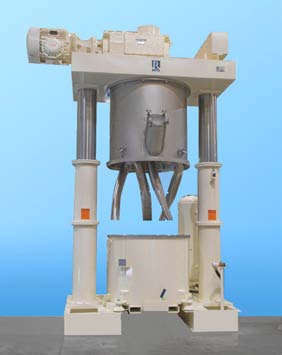
A producer of flotation devices prepares high volume amounts of syntactic foam in their Ross Double Planetary Mixers.
Each 500-gallon mixer is equipped with helical High Viscosity "HV" blades driven by a 150 HP high efficiency motor. A dual-post hydraulic lift raises and lowers the agitators into the vessel.
After mixing, the batch is transferred to the discharge station where a precisely-machined platen is lowered into the vessel and forces the viscous composite out through a valve on the vessel bottom. With push-button simplicity, the system automatically discharges a 500-gallon batch into respective molds in minutes. Cleaning is simple since the platen virtually wipes the vessel sidewalls and there are no glands or bearings submerged in the product zone of the mixer.